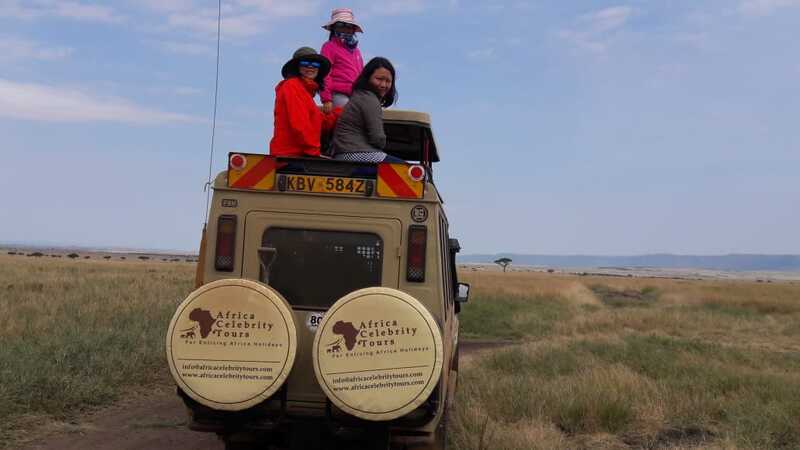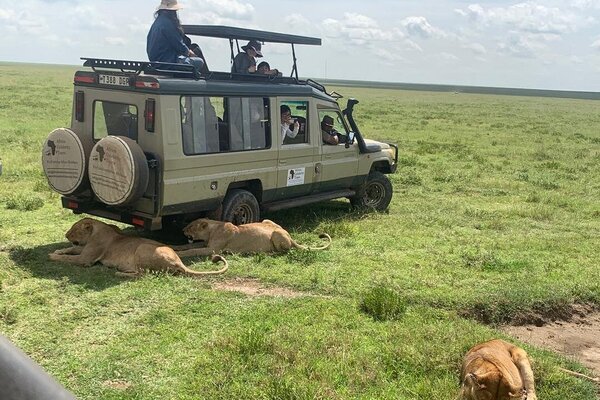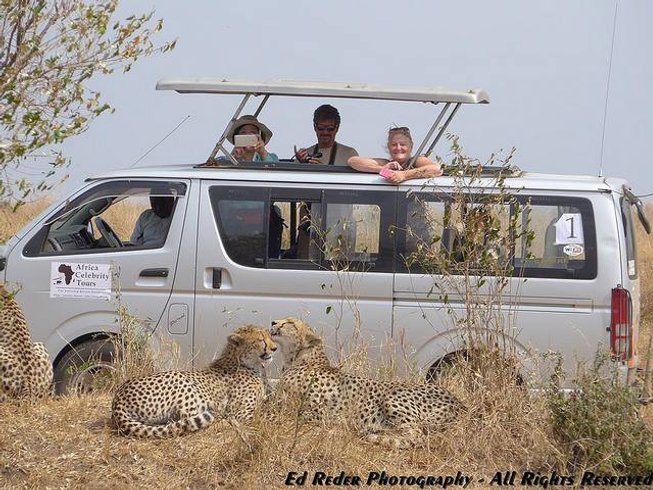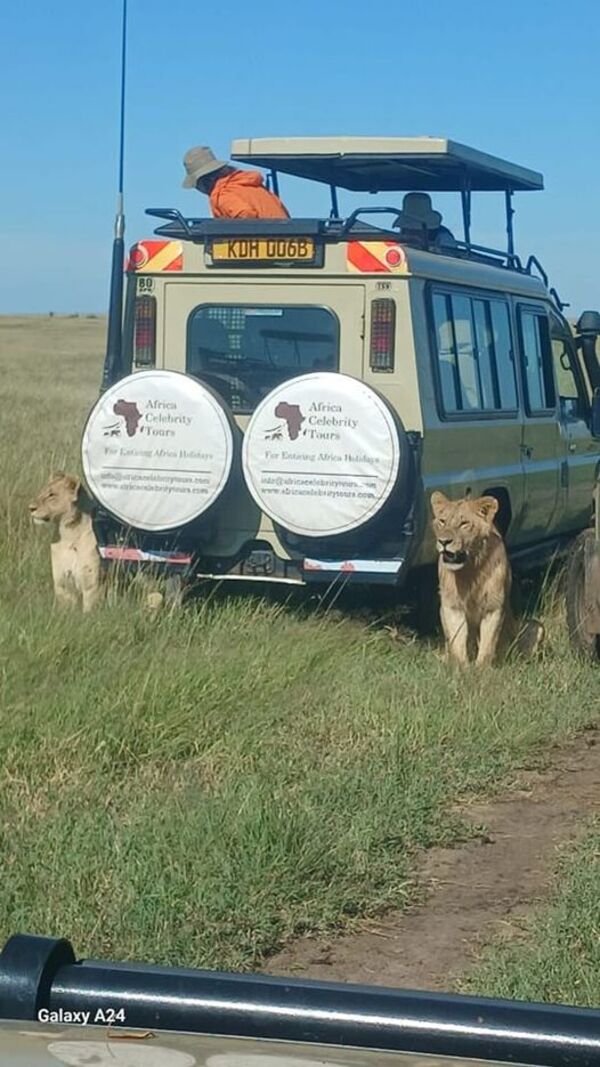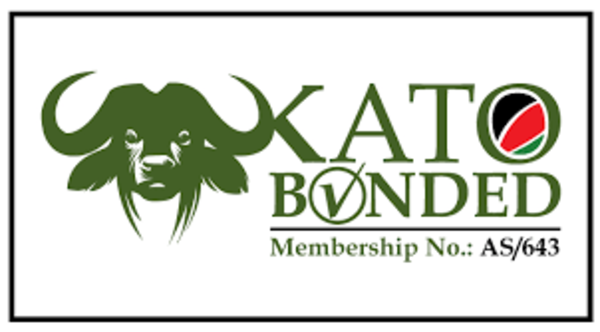Africa Celebrity Tours & Travels Ltd Travel Tips
Travel Tips
Getting to Kenya.
Jomo Kenyatta International Airport (JKIA) serves as a hub for East and Central Africa and most major international and regional airlines fly into Kenya through JKIA. A number of International Airlines fly into Kenya daily from both Amsterdam and London-Heathrow. Kenya Airways partners with KLM Royal Dutch have connections to/from all over the world. We also have Virgin Atlantic and British Airways flying into JKIA from Heathrow. In Mombasa we have also Moi International Airport which serves both regular and charter flights arriving from most European capitals. This airport also supports major local and regional airlines servicing our beach resorts.
Kenya has an excellent network of domestic carriers offering flights to all major city centres throughout Kenya. A flight between Nairobi and Mombasa is 45 Minutes. Regional flights to neighboring countries operate out of Nairobi.
What to pack.
Pack ahead. Most of the time you'll be most comfortable in light, summer-weight clothes but do pack a warm jacket, socks, good shoes and a rain jacket. Pack sunscreen – lots of it – and a hat and sunglasses. Make sure you have at least one cool shirt with a collar for sun protection. Stock up on insect repellent and, if you'll be in a malaria area, ensure you have a cool, long-sleeved shirt and cool long pants for evenings. Bring good walking shoes.
Always pack a bandanna or cotton scarf and a sarong, kanga, pareo, kikoi – whatever you want to call it. These two garments are probably the most useful and versatile items in the world. If you're spending time watching game, you should try to wear reasonably neutral colours but, really, you don't have to look like an extra on the set of Out of Africa. You don't need formal clothes, but you will need something smart / smart casual for exclusive hotels and the formal attire for dinners.
If you've forgotten anything – don't panic. This is not the back of beyond, and you can buy whatever you need – probably at a good price.
And pack a camera – you'll want to save your wonderful memories. You can buy film and additional memory cards anywhere, and camera batteries in any city.
When you pack your bag please bear in mind that some safaris / air charters limit baggage to a 10-15 kilos maximum. Baggage space in minibuses is limited too and we therefore recommend use soft bags and/or soft suitcases.
The First Thing to Do When You Get Off a Long Flight: How to adjust quickly (and stay healthy) while traveling
First: Resist the urge to snooze. No matter where you are going, no matter what time you get there, stay up until midnight local time. If you absolutely can’t keep your eyes open, it’s OK to take a short nap. Just make sure you don’t sleep for more than a couple of hours. And try to get into your normal routine as soon as possible. Get up when you usually do, and try to eat your meals, exercise, and go to bed at your regular times.
Then: Drink plenty of water as dehydration occurs whilst flying. And, for the first day, don’t eat anything with heavy sauces or anything that your body is going to have to work extra-hard to digest. Fruit, raw vegetables, and salads are all good choices.
Health & Medical care. Kenya has excellent health services and doctors with some of the best training in the world. There are adequate hospitals and medical care facilities throughout the country. However, visitors should ensure that they have sufficient funds and medical insurance to cover the fees of private facilities.
Since rules concerning disease prevention vary from time to time, most current information should be sought from our office via email and we shall reply immediately, or in the following authorities; the Kenyan Embassy / High Commission, Tourist Office or from any airline flying scheduled services into Kenya from your country of residence prior to traveling. Malaria is endemic to most parts of Kenya and intending visitors should start taking anti-malarial tablets before departure and should continue taking them for the prescribed period of time after their return home. A mosquito repellent is also advisable. Yellow-Fever vaccination is not mandatory; however we would recommend that you check with your local authorities as some countries require their nationals to immunize against yellow-fever.
Drugs / medication.
If you are dependent on any drugs – or medication, as we say – bring a supply and a spare prescription. (We call our drugstores '/pharmacies/'.)
Flying doctors Society. Membership of the Flying Doctors Society is strongly recommended. In the event of accident or sickness while on safari, the society will fly / evacuate patients by air ambulance to Nairobi for admittance into hospital. The cost for membership varies and it is advisable that you contact us for the most current fee. Payment of this fee can be organized on your behalf by Africa Celebrity Tours & travels, prior to your arrival.
Spectacles (glasses), contact lenses.
Bring spare spectacles, and/or a copy of your prescription. If you wear contact lenses, consider using disposables for a short holiday, especially if you're planning to river raft, dive or such. Also bring spectacles, as the dry dusty environment of some areas may irritate your eyes.
Drinking Water.
Hotels and Game Lodges supply clean drinking water in Thermos Flasks for drinking or brushing; bottled mineral water is available widely everywhere in the country at all supermarkets, lodges and hotels and we highly recommend the use of mineral water. Drinking any tap water is not recommended.
Smoking.
Law prohibits smoking in most public areas, including airports and railway stations. Most restaurants have designated smoking and non-smoking areas.
Important documents.
Make two copies of all your important documents, like passports. Take one with you, in a different bag to the original, and leave one at home with a responsible, easily reachable person. Try to memorize all your important numbers - passport numbers, credit card numbers, etc. If you lose your bag, this could be an enormous help.
Customs.
Value-added-tax (VAT) is charged on most items. Visitors may import, duty-free, 200 cigarettes or 50 cigars, and one litre of spirit. Please take note that the Customs officials want to see the purchased items and receipts - so everything should be packed at the top of the suitcase and with-in easy reach.
What to Buy.
There is a big variety of souvenirs to take home. Most hotels have licensed souvenir shops and there are a large number of such outlets in the main towns. We also have tourist markets on Tuesdays and Saturdays in Nairobi. City market is also open daily where one can purchase souvenirs. In Mombasa the ideal place is at Bombolulu Crafts Centre besides also in major tourist hotels and airport.
Tipping.
Tipping is customary in Kenya but not mandatory, most kenyan restaurants / lodges / hotels do not include a service charge on the total bill. It is customary to leave a 10% tip for good service, or more for excellent service.
Hotel Staff - Doormen and Bellhops: Tip $2 to $3 (or the local equivalent) per bag, and give $1 per person taking a hailed cab.
Housekeeping: Tip $3 to $7 per night. Leave it with a note, since most housekeepers aren't allowed to touch money that's lying out unattended.
Tour Guides / Driver guides: $8 – $15 per person per day.
Climate:
If there is a perfect climate in the world, surely it is in East Africa. Although it can be hot and sticky by the sea, inland the air is dry and even at midday the temperature is equitable.
East Africa’s position on the equator means sunrise occurs daily between 0600 and 0630, while sunset takes place 12 hours later – just like a shade being drawn over the sky.
When it is dark, the temperature drops dramatically.
There are two rainy seasons – usually mid –April to the end of May, and November to mid December.
Even during the rains, the weather can be pleasant, with rain occurring early in the morning and late in the afternoon or evening.
Passport and Visas:
Your passport must be valid six months after date of travel. Visas can either be obtained from the Kenyan High Commissions in your country of residence, or at customs office upon arrival at Jomo Kenyatta International Airport, Nairobi or Moi International Airport, Mombasa. The fee remains US$ 50.- per passport. This figures change from time to time and it is vital consult the relevant embassy, high commission or consulate for visa details at your time of travel.
Personal Safety.
As in any foreign country, visitors are advised to be aware and alert when travelling to avoid falling prey to petty theft and crime. Most areas and attractions in kenya can be safely visited. However, use common sense, be discreet with expensive camera equipment and jewellery and be aware of your surroundings. Avoid walking in deserted areas after dark and when driving, always park in a well lit and designated parking area. In you have any doubts, speak to your hosts and ask for their advice on potential areas to avoid.
Kenya is +3 hours GMT and +2 hours Central Europe in Winter time and +1 hour in summer time.
Airport departure Tax.
An International airport departure tax of US$ 20.- or the equivalent in any other foreign currency is levied. Since September 1998, this tax should be collected by the International airline as part of the airfare. A service charge of sh.200 is due on domestic flights which could be included in your flight ticket or may be payable direct at the counter. Your agent will advise you accordingly.
Photography:
Here is no shortage of the more usual film throughout Africa, however taking photographs at airports, parliament, some government offices, near military installations, of policemen, the president, the national flag, the State House, state properties and prisoners, is completely prohibited. Useful tips: if you stay in Kenya long enough, have your photos processed there, it is cheaper than in Europe; the use of an U.V. filter on your lens is advisable in all circumstances. Prior to taking photographs of local people, permission should be obtained and a fixed price agreed upon. Please seek the assistance of your driver / guide regarding this matter.
Etiquette in Town.
Kenya has several religions, but the Coast is predominantly Muslim, therefore you are requested to observe certain modesty in your dress.
Wildlife Etiquette.
* It is important to note that Africa’s wildlife is just that – wild.
* In many places there are no fences and potentially dangerous animals can (and do!) wander through. Attacks by wild animals are rare, however.
* Please listen to your guides and hosts. The safety precautions need to be taken seriously.
* Don't go wandering off on your own, approach animals on foot, or leave your vehicle to do so, unless you are with a qualified guide.
* Don't swim in rivers unless your guide recommends it. Crocodiles, hippos and bilharzia are potential dangers.
* Always observe animals silently and with minimum disturbance to their natural activities. Loud talking on game drives can frighten the animals away.
* Never attempt to attract an animal's attention. Don't imitate animal sounds, clap your hands, pound the vehicle or throw objects. Erratic movements will frighten or disturb the wildlife.
* Please respect your host / driver / guide's judgment about proximity to lions, cheetahs and leopards. Don't insist that he take the vehicle closer so you can get a better photograph. A vehicle driven too close can hinder a hunt or cause animals to abandon a hard-earned meal.
* Litter tossed on the ground can choke or poison animals and birds and is unsightly.
* Refrain from smoking on game drives. The dry African bush ignites very easily, and a flash fire can kill animals.
* Don't drive off the roads in game reserves and National Parks.
* Don't feed animals or birds (especially baboons and hyenas) - this creates dependency, so they become a threat to travelers and rangers have to shoot them!
* Don't buy products made from endangered fauna or flora. If you see such curios for sale on your trip please notify us.
